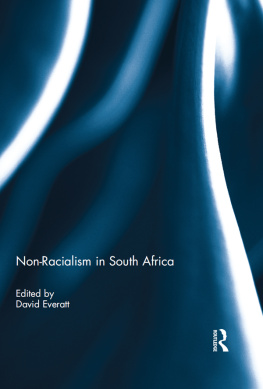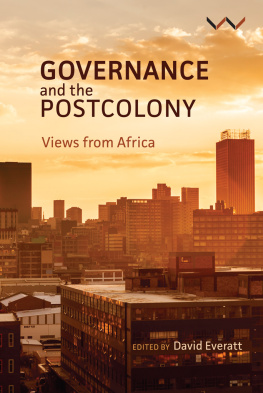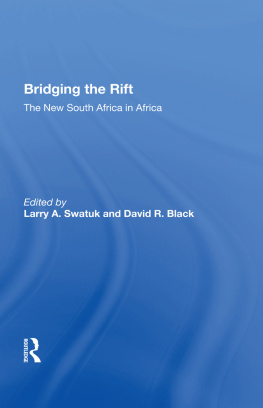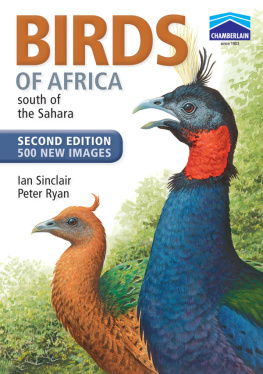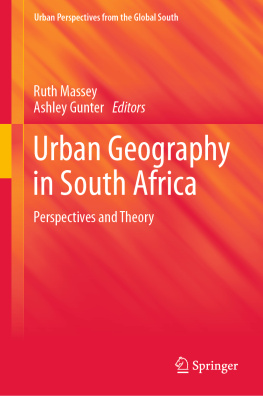Non-Racialism in South Africa
When Nelson Mandela was elected President of South Africa in 1994, the world looked on at the miracle of racial reconciliation that unfolded in South Africa. However, the dream of a Rainbow Nation (in Archbishop Desmond Tutus phrase) seems to be fading, and racial identities seem to be more entrenched than ever. What prospects then for the non-racial democracy envisioned by Mandela and the South African Constitution?
This book examines the status and future prospects of non-racialism. It discusses the nature of non-racialism and applies the concept to wider national issues and to questions of identity. The book looks into South Africas future and assesses generational changes to the countrys handling of non-racialism. This latter point is the main theme in the opening preface by Ahmed Kathrada, jailed with Nelson Mandela, who reminds the reader that there is no easy answer: non-racialism is built every day, every minute, by people who seek to transform social relations and allow the Rainbow Nation to flourish.
This book was published as a special issue of Politikon.
David Everatt is the Executive Director of the Gauteng City-Region Observatory, a partnership of the University of Johannesburg, University of the Witwatersrand, and the Gauteng provincial Government. His most recent book is The origins of non-racialism: White opposition to apartheid in the 1950s (Wits University Press, 2010).
Non-Racialism in South Africa
Edited by
David Everatt
First published 2014
by Routledge
2 Park Square, Milton Park, Abingdon, Oxon, OX14 4RN
Simultaneously published in the USA and Canada
by Routledge
711 Third Avenue, New York, NY 10017
Routledge is an imprint of the Taylor & Francis Group, an informa business
2014 South African Association of Political Studies
This book is a reproduction of Politikon, vol. 39, issue 1. The Publisher requests to those authors who may be citing this book to state, also, the bibliographical details of the special issue on which the book was based.
All rights reserved. No part of this book may be reprinted or reproduced or utilised in any form or by any electronic, mechanical, or other means, now known or hereafter invented, including photocopying and recording, or in any information storage or retrieval system, without permission in writing from the publishers.
Trademark notice: Product or corporate names may be trademarks or registered trademarks, and are used only for identification and explanation without intent to infringe.
British Library Cataloguing in Publication Data
A catalogue record for this book is available from the British Library
ISBN13: 978-0-415-83498-8 (hbk)
ISBN13: 978-0-415-72517-0 (pbk)
Typeset in Times New Roman
by Cenveo Publisher Services
Publishers Note
The publisher would like to make readers aware that the chapters in this book may be referred to as articles as they are identical to the articles published in the special issue. The publisher accepts responsibility for any inconsistencies that may have arisen in the course of preparing this volume for print.
Contents
Ahmed Kathrada
David Everatt
Orli Bass, Kira Erwin, Amanda Kinners and Gerhard Mar
Rupert Taylor
Firoz Cachalia
Daniel Hammett
Annsilla Nyar
Caryn Abrahams
Kate Lefko-Everett
Fiona Anciano and Johnny Alubu Selemani
David Everatt
The chapters in this book were originally published in Politikon, volume 39, issue 1 (April 2012). When citing this material, please use the original page numbering for each article, as follows:
Preface: Non-Racialism in South Africa Today
Ahmed Kathrada
Politikon, volume 39, issue 1 (April 2012) pp. 1-4
Chapter 1
Non-Racialism in South Africa: Status and Prospects
David Everatt
Politikon, volume 39, issue 1 (April 2012) pp. 5-28
Chapter 2
The Possibilities of Researching Non-Racialism: Reflections on Racialism in South Africa
Orli Bass, Kira Erwin, Amanda Kinners and Gerhard Mar
Politikon, volume 39, issue 1 (April 2012) pp. 29-40
Chapter 3
Deepening Non-Racialism in South Africa
Rupert Taylor
Politikon, volume 39, issue 1 (April 2012) pp. 41-52
Chapter 4
Revisiting the National Question and Identity
Firoz Cachalia
Politikon, volume 39, issue 1 (April 2012) pp. 53-70
Chapter 5
Requiring Respect: Searching for Non-Racialism in Post-Apartheid South Africa
Daniel Hammett
Politikon, volume 39, issue 1 (April 2012) pp. 71-88
Chapter 6
Some New Perspectives on South African Indians and Non-Racialism: Findings from the AKF Non-Racialism Focus Group Data
Annsilla Nyar
Politikon, volume 39, issue 1 (April 2012) pp. 89-112
Chapter 7
We cant really say what the future holds for us: Non-Racialism in a Transitional Democracy
Caryn Abrahams
Politikon, volume 39, issue 1 (April 2012) pp. 113-126
Chapter 8
Leaving it to the Children: Non-Racialism, Identity, Socialisation and Generational Change in South Africa
Kate Lefko-Everett
Politikon, volume 39, issue 1 (April 2012) pp. 127-148
Chapter 9
Rethinking Non-Racialism: Reflections of a Selection of South African Leaders
Fiona Anciano and Johnny Alubu Selemani
Politikon, volume 39, issue 1 (April 2012) pp. 149-169
AHMED KATHRADA
I have been asked to write the preface for this important collection of articles that deal with non-racialism in post-apartheid South Africa. This is a daunting challenge, as it is well known that I was never one for major theoretical engagements. For me, practice always took precedence over long discussions and debates. This is my own shortcoming, and something of which I am not particularly proud.
That said, having attended the conference of the Foundation that bears my name, where papers were presented that dealt with the interpretations of focus groups (convened by the Foundation and the Gauteng City-Region Observatory) on non-racialism, I must admit that I began to see the necessity for more rigorous work on the subject.
I have previously said that the term non-racialism is a recent one, and not one that was used in the Congress movement in the 1940s and 1950s. My contention is that although this might have been the case, the practice that was to later come to be defined or associated with the notion of non-racialism was in place from the 1930s onwards.
A major criticism of our approach to building non-racialism was that we had established separate organisations for mass mobilisation based on racial lines. This might well have been a shortcoming, but it must also be judged in context, against the times within which such decisions were made. Firstly, organisations had developed as a result of different discriminatory laws being applied to specific communities. Secondly, the African National Congress (ANC) and Indian Congresses (Transvaal Indian Congress (TIC) and Natal Indian Congress (NIC), which formed the South African Indian Congress)had not yet arrived at a point where collaboration was deemed necessary or possible. The leadership of both organisations were in the control of more conservative elements, who preferred a politics of deputation and petition, not resistance politics. The change of guard in the ANC and Indian Congresses that came about in the 1940s, mentioned in many of the articles in this edition, laid the basis for this new approach.


